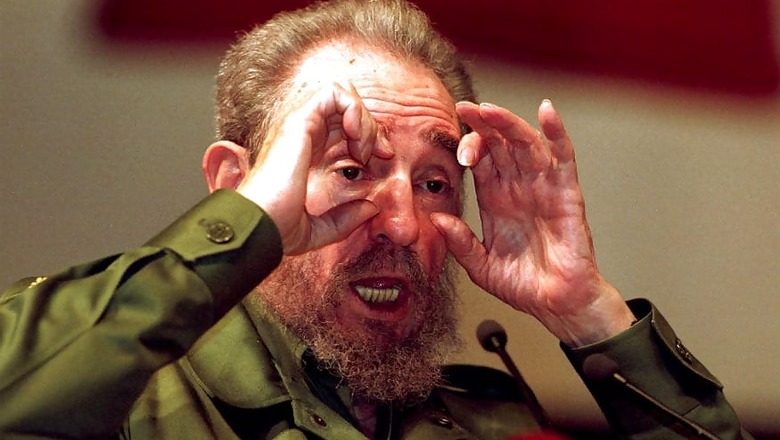
views
Nightclubs closed, baseball games were suspended and booze was banned Sunday as Cuba prepared to send off revolutionary leader Fidel Castro with days of tributes and a cross-country funeral procession.
Cubans braced for a series of events to commemorate the life of the man who ruled the communist island for decades, played a major role in the Cold War and was loved or loathed by many.
Students left candles burning next to a portrait of the black-bearded communist firebrand during a vigil at Havana University.
A titan of the 20th century who beat the odds to endure into the 21st, Castro died late Friday after surviving 11 US administrations and hundreds of assassination attempts. No cause of death was given.
"It is a great loss. The most important thing is that he died when he chose, not when all the counter-revolutionaries wanted," said Carlos Manuel Obregon Rodriguez, a 43-year-old taxi driver in Havana.
"It may not be painful for everyone, but it is for a lot of people. I was born under this revolution and I owe Fidel a lot," he added.
President Raul Castro said his older brother's remains would be cremated. There was no official confirmation of whether that had yet happened.
Dissidents who endured Fidel's iron fisted rule kept a low profile, while the Ladies in White group cancelled a regular yesterday protest in what they said was a show of respect for those mourning Castro.
"We are not happy about the death of a man, a human being. We are happy about the death of dictators," Berta Soler, leader of the Ladies in White, told AFP.
No official events were scheduled yesterday but a series of memorials will begin Monday, when Cubans are called to converge on Havana's Revolution Square.
"Tomorrow will be great. It will go down in history," Obregon said.
Castro's ashes will then go on a four-day island-wide procession before being buried in the southeastern city of Santiago on December 4.
Santiago, Cuba's second city, was the scene of Castro's ill-fated first attempt at revolution in 1953 -- six years before he succeeded in ousting the US-backed dictator Fulgencio Batista.




















Comments
0 comment